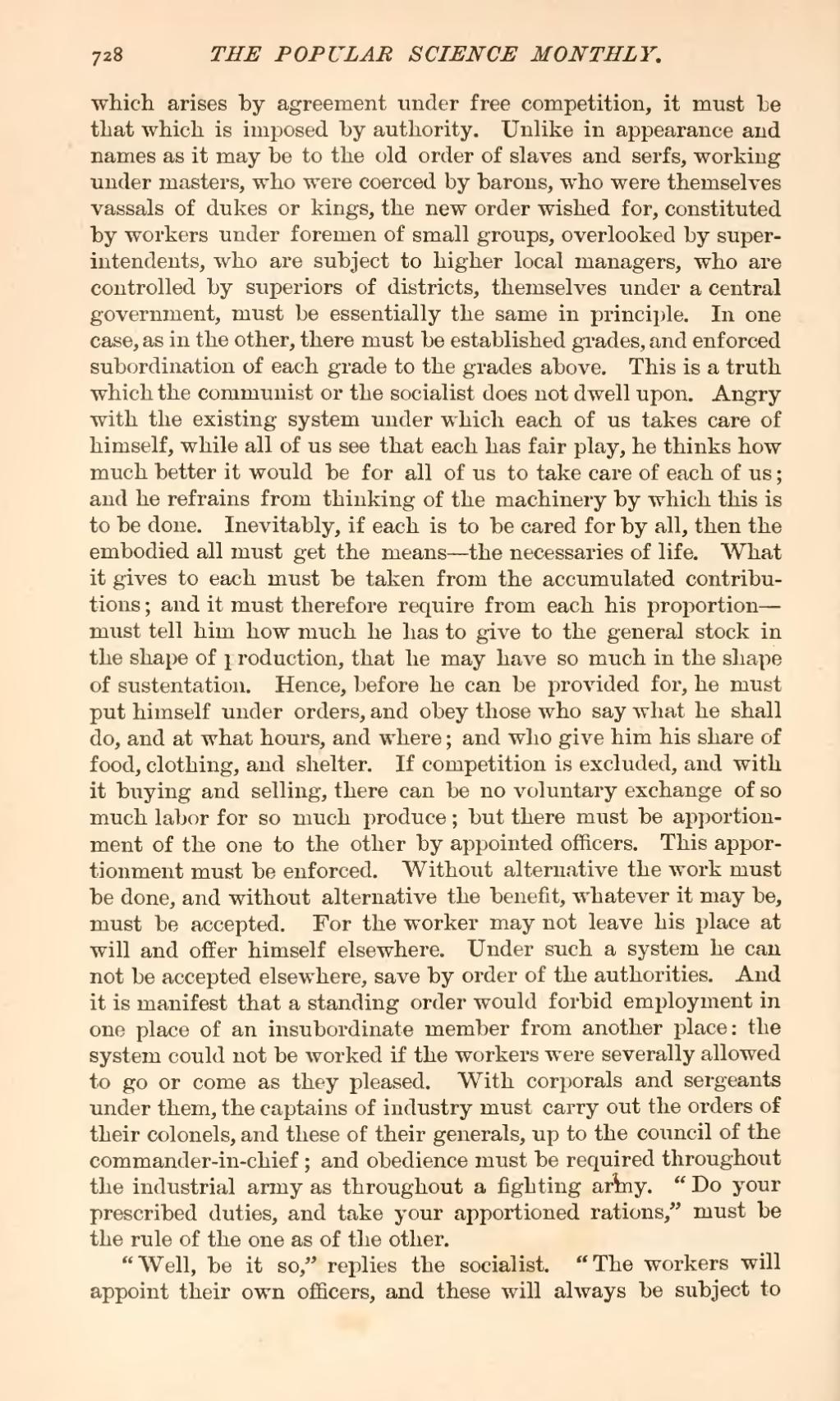which, arises by agreement under free competition, it must he that which is imposed by authority. Unlike in appearance and names as it may be to the old order of slaves and serfs, working under masters, who were coerced by barons, who were themselves vassals of dukes or kings, the new order wished for, constituted by workers under foremen of small groups, overlooked by superintendents, who are subject to higher local managers, who are controlled by superiors of districts, themselves under a central government, must be essentially the same in principle. In one case, as in the other, there must be established grades, and enforced subordination of each grade to the grades above. This is a truth which the communist or the socialist does not dwell upon. Angry with the existing system under which each of us takes care of himself, while all of us see that each has fair play, he thinks how much better it would be for all of us to take care of each of us; and he refrains from thinking of the machinery by which this is to be done. Inevitably, if each is to be cared for by all, then the embodied all must get the means—the necessaries of life. What it gives to each must be taken from the accumulated contributions; and it must therefore require from each his proportion—must tell him how much he has to give to the general stock in the shape of production, that he may have so much in the shape of sustentation. Hence, before he can be provided for, he must put himself under orders, and obey those who say what he shall do, and at what hours, and where; and who give him his share of food, clothing, and shelter. If competition is excluded, and with it buying and selling, there can be no voluntary exchange of so much labor for so much produce; but there must be apportionment of the one to the other by appointed officers. This apportionment must be enforced. Without alternative the work must be done, and without alternative the benefit, whatever it may be, must be accepted. For the worker may not leave his place at will and offer himself elsewhere. Under such a system he can not be accepted elsewhere, save by order of the authorities. And it is manifest that a standing order would forbid employment in one place of an insubordinate member from another place: the system could not be worked if the workers were severally allowed to go or come as they pleased. With corporals and sergeants under them, the captains of industry must carry out the orders of their colonels, and these of their generals, up to the council of the commander-in-chief; and obedience must be required throughout the industrial army as throughout a fighting army. "Do your prescribed duties, and take your apportioned rations," must be the rule of the one as of the other.
"Well, be it so," replies the socialist. "The workers will appoint their own officers, and these will always be subject to
